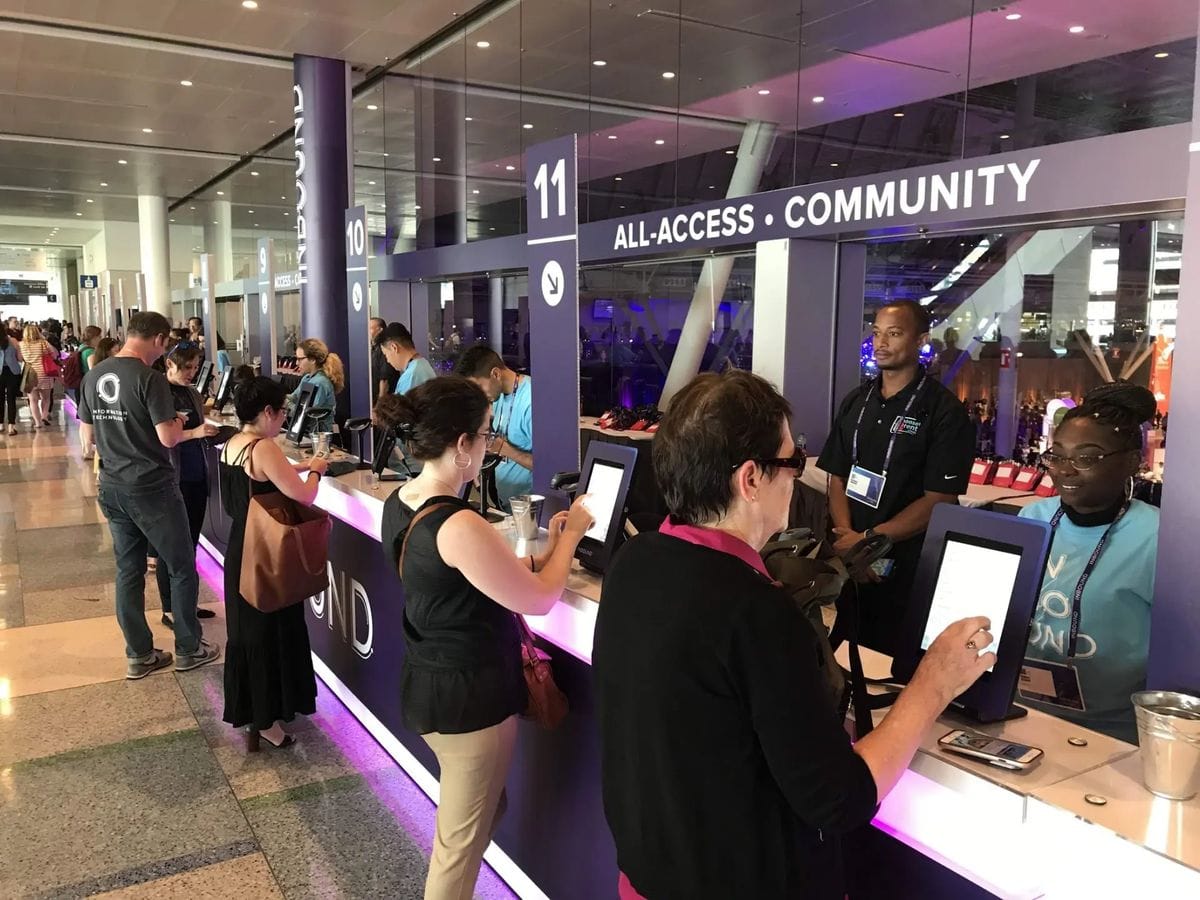The event management software industry has a fundamental problem: it's designed for enterprises that no longer exist. While modern businesses are lean, agile, and efficiency-focused, the event platform market continues pushing bloated, overpriced solutions built for corporate giants of the past decade.
Small and medium-sized businesses (SMBs) find themselves trapped between two equally frustrating options: paying enterprise prices for sophisticated features they'll never use, or cobbling together free tools that leave critical gaps in their event management workflow. This mismatch between available solutions and actual business needs has created a significant opportunity gap in the market. It's time to acknowledge that the future of business events lies in elegant simplicity, not overwhelming complexity.

The Enterprise Trap
Traditional enterprise event platforms were designed during an era when companies had dedicated event teams, unlimited budgets, and months to plan every gathering. These platforms include advanced analytics dashboards with dozens of metrics, multi-tier approval workflows that require executive sign-off, complex integrations with numerous software systems, and extensive customization options requiring technical expertise to implement effectively.
For small marketing agencies planning quarterly client meetups or startups organizing product launches, these features aren't just unnecessary—they're actively counterproductive. The time spent learning complex software interfaces and navigating byzantine menu systems could be better invested in actually connecting with attendees and creating genuinely memorable experiences that drive business results.
Consider the typical SMB event scenario: a lean team of 2-5 people organizing events for 20-200 attendees, working with tight timelines and even tighter budgets. They need to send professional invitations, track RSVPs accurately, manage a straightforward registration process, and collect essential attendee information. The entire planning process should take hours, not weeks of intensive software training and configuration.
The Real Cost of Complexity
The hidden costs of enterprise event platforms extend far beyond monthly subscription fees. Complex software requires extensive training time, ongoing maintenance, and often dedicated IT support to function properly. When platforms offer 50+ different features across multiple modules, team members spend more time navigating confusing menus than actually planning meaningful events.
Many SMBs report spending 40-60% of their event planning time simply managing the software itself—learning how to customize registration forms, troubleshooting integration issues with existing tools, and generating comprehensive reports containing far more data than anyone actually needs or has time to analyze. The software becomes the primary bottleneck, not the productivity solution it promises to be.
Truly effective event software should enhance productivity and streamline workflows, not drain precious resources. When small business owners can set up complete event registration systems in 15 minutes instead of 15 hours, that represents genuine value creation that directly impacts their bottom line.
What Modern Businesses Actually Need
Modern SMB event management requirements are surprisingly straightforward and focused. Most businesses need reliable platforms handling five core functions: easy invitation distribution, streamlined registration processes, basic attendee communication, simple check-in procedures, and minimal post-event follow-up capabilities.
The real magic isn't having hundreds of available features—it's having the essential features executed flawlessly with intuitive design. Registration forms that actually work seamlessly on mobile devices are infinitely more valuable than complex analytics dashboards that nobody has time to interpret or act upon. Automated reminder emails that arrive at precisely the right time are more valuable than sophisticated segmentation tools requiring marketing degrees to operate effectively.
Modern businesses increasingly value speed and flexibility over extensive customization options. They'd rather launch professional event registration pages in minutes using clean, proven templates than spend days building elaborate custom-branded experiences that only marginally improve their brand presentation to attendees.
The Rise of Right-Sized Solutions
Smart event platform providers are beginning to recognize this shift. Instead of cramming more features into already bloated systems, they're focusing on perfecting the essentials. These right-sized solutions typically cost 60-80% less than enterprise alternatives while delivering better user experiences for typical SMB use cases.
The best simple event platforms share common characteristics: intuitive interfaces that require no training, mobile-first design that works seamlessly across devices, transparent pricing without hidden fees, and customer support that actually understands small business needs.
These platforms recognize that small businesses don't want to become event management experts—they want to focus on their core business while ensuring their events run smoothly. The software should be invisible, handling logistics efficiently so organizers can concentrate on creating valuable experiences for their attendees.

Making the Smart Choice
The shift toward simpler, more focused event platforms reflects a broader trend in business software. Companies are realizing that having fewer, better-executed features often delivers superior results than having comprehensive toolsets that overwhelm users.
For SMBs evaluating event management options, the question isn't "What can this platform do?" but rather "How quickly can I accomplish what I need to do?" The right solution should feel like a natural extension of your existing workflow, not a complex system that requires dedicated expertise to operate effectively.
The future belongs to businesses that can move quickly and adapt easily. Your event management platform should support that agility, not hinder it with unnecessary complexity and enterprise-grade overhead designed for problems you don't actually have.


